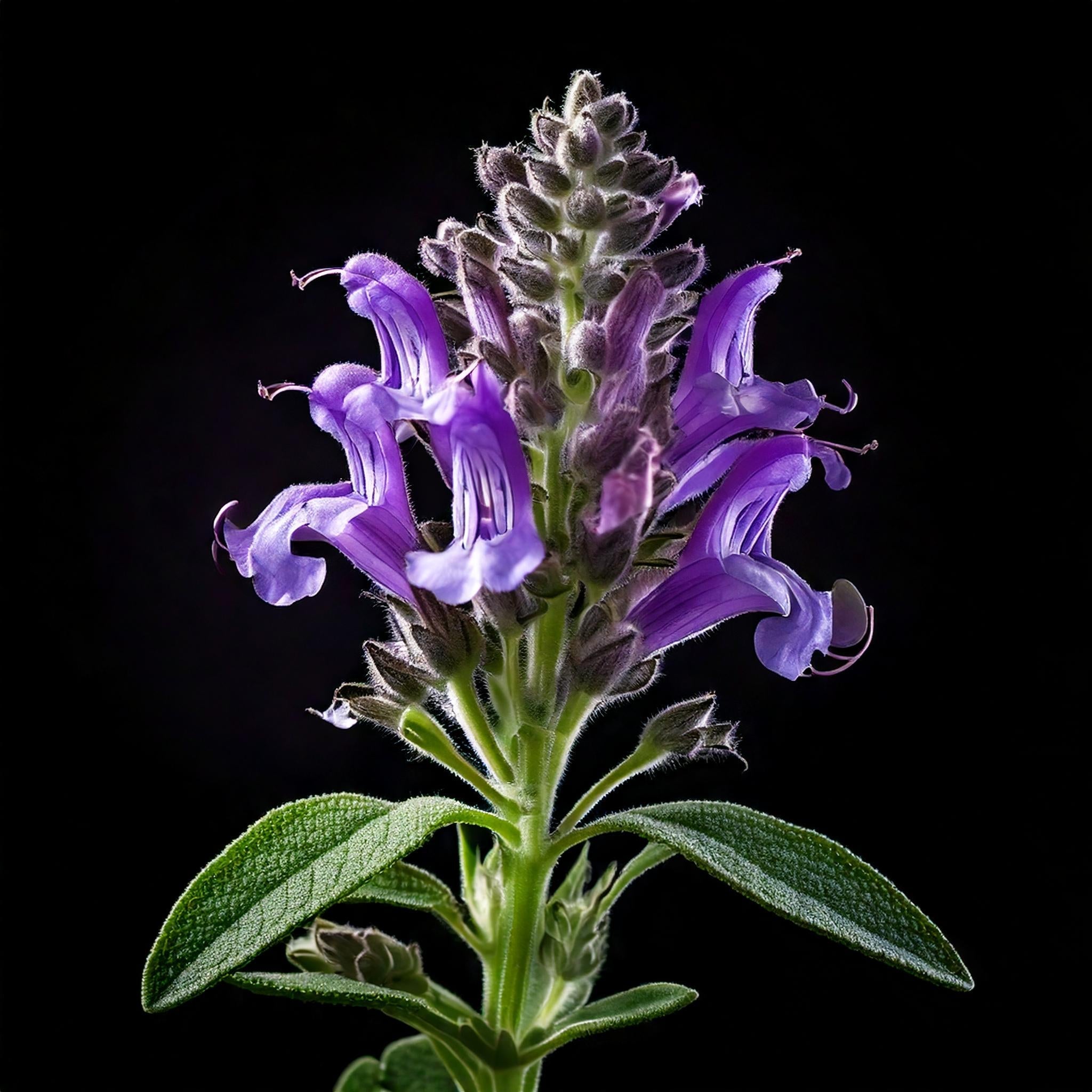
Exploring the Medicinal Properties of Black Sage and Black Sage Honey
Exploring the Medicinal Properties of Black Sage and Black Sage Honey: Traditional Uses and Modern Research
Black sage (Salvia mellifera), a perennial shrub native to California and northern Baja California, has long been revered for its medicinal properties. Belonging to the Lamiaceae family, it is distinguished by its aromatic, grayish leaves and clusters of delicate lavender to pale blue flowers. Black sage honey, a rare monofloral honey produced by bees that predominantly forage on Black sage flowers, has also garnered attention for its purported therapeutic benefits. This article delves into the traditional uses and contemporary scientific research surrounding Black sage and its honey.
Traditional Uses of Black Sage
For centuries, Indigenous peoples of California have utilized Black sage as part of their ethnobotanical practices. The plant has been employed in various forms—as teas, poultices, and smudges—to address a spectrum of ailments. Common traditional applications include:
-
Respiratory Relief: Black sage has been used to alleviate symptoms of colds, coughs, and asthma. Its leaves are often brewed into a tea to clear the airways and reduce inflammation in the respiratory tract.
-
Pain Management: Indigenous communities have applied crushed leaves of Black sage topically to relieve muscle and joint pain, owing to its potential anti-inflammatory and analgesic properties.
-
Digestive Aid: The plant has been used to promote digestion, particularly in cases of bloating and indigestion.
-
Spiritual Practices: Black sage holds cultural significance as a smudging herb used to cleanse spaces and individuals, often in preparation for ceremonies.
Phytochemistry of Black Sage
The medicinal properties of Black sage are largely attributed to its rich phytochemical composition. Key constituents include:
-
Essential Oils: Compounds such as cineole, camphor, and terpenes exhibit antimicrobial, anti-inflammatory, and antioxidant activities.
-
Flavonoids: These bioactive compounds, known for their antioxidant properties, play a role in mitigating oxidative stress and inflammation.
-
Rosmarinic Acid: A compound with documented anti-inflammatory and antimicrobial effects, rosmarinic acid is prevalent in many sage species, including Black sage.
Modern Scientific Research on Black Sage
While traditional uses of Black sage are well-documented, scientific investigations are increasingly validating these practices:
-
Anti-Inflammatory Effects: Studies have demonstrated that extracts of Salvia mellifera exhibit significant anti-inflammatory activity, likely due to the presence of rosmarinic acid and other phenolic compounds. These effects may be beneficial in managing conditions like arthritis and muscle pain.
-
Antimicrobial Activity: Research has identified that essential oils from Black sage possess broad-spectrum antimicrobial properties against bacteria and fungi. This supports its traditional use for treating infections and wounds.
-
Antioxidant Potential: The flavonoids and phenolic acids in Black sage contribute to its potent antioxidant capacity, which may help protect against oxidative damage linked to chronic diseases such as cancer and neurodegenerative disorders.
-
Respiratory Health: Preliminary studies suggest that inhalation of Black sage essential oils or consumption of its tea may help alleviate bronchial congestion and reduce inflammation in respiratory pathways.
The Unique Properties of Black Sage Honey
Black sage honey is a monofloral honey prized for its light amber color, smooth texture, and distinctive herbal flavor. Due to the limited flowering season of Black sage, this honey is relatively rare, making it a sought-after product in both culinary and medicinal contexts.
Medicinal Benefits of Black Sage Honey
Honey, in general, has long been recognized for its antimicrobial, anti-inflammatory, and wound-healing properties. Black sage honey, however, may offer unique benefits due to the specific phytochemicals derived from Salvia mellifera nectar. Key properties include:
-
Antimicrobial Activity: Studies on monofloral honeys have shown that they can inhibit the growth of pathogenic bacteria such as Staphylococcus aureus and Escherichia coli. Black sage honey, in particular, may possess enhanced antimicrobial effects due to the terpenes and flavonoids derived from Black sage.
-
Wound Healing: Like other honeys, Black sage honey may promote wound healing by creating a moist environment, reducing inflammation, and preventing bacterial infections.
-
Antioxidant Support: The antioxidant compounds in Black sage honey may help neutralize free radicals, thereby supporting overall health and reducing the risk of chronic diseases.
-
Soothing Effects: Black sage honey is often used as a natural remedy for sore throats and coughs. Its viscous texture coats the throat, while its bioactive compounds provide antimicrobial and anti-inflammatory relief.
Challenges and Future Directions
While promising, research on Black sage and its honey remains limited compared to other well-studied plants and honey varieties. Challenges include:
-
Standardization: Variability in phytochemical composition due to environmental factors, such as soil type and climate, complicates the standardization of Black sage-derived products.
-
Sustainability: The limited range and flowering period of Black sage necessitate careful management to ensure sustainable harvesting and honey production.
-
Clinical Validation: While in vitro and animal studies have provided valuable insights, more human clinical trials are needed to substantiate the therapeutic claims associated with Black sage and its honey.
Conclusion
Black sage and Black sage honey hold significant promise as natural remedies, bridging the gap between traditional knowledge and modern science. From their anti-inflammatory and antimicrobial properties to their potential in supporting respiratory and digestive health, these products embody the therapeutic potential of nature. As research continues to uncover their benefits, Black sage and its honey may gain a more prominent place in integrative medicine, offering a sustainable and culturally rich approach to health and well-being.